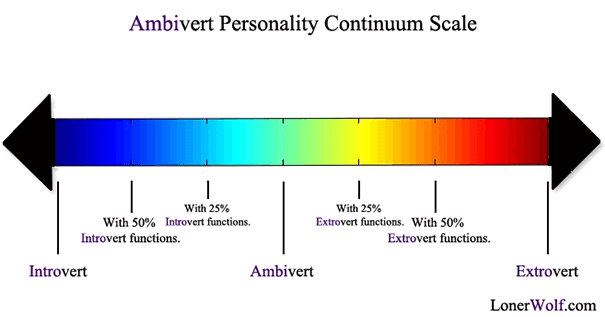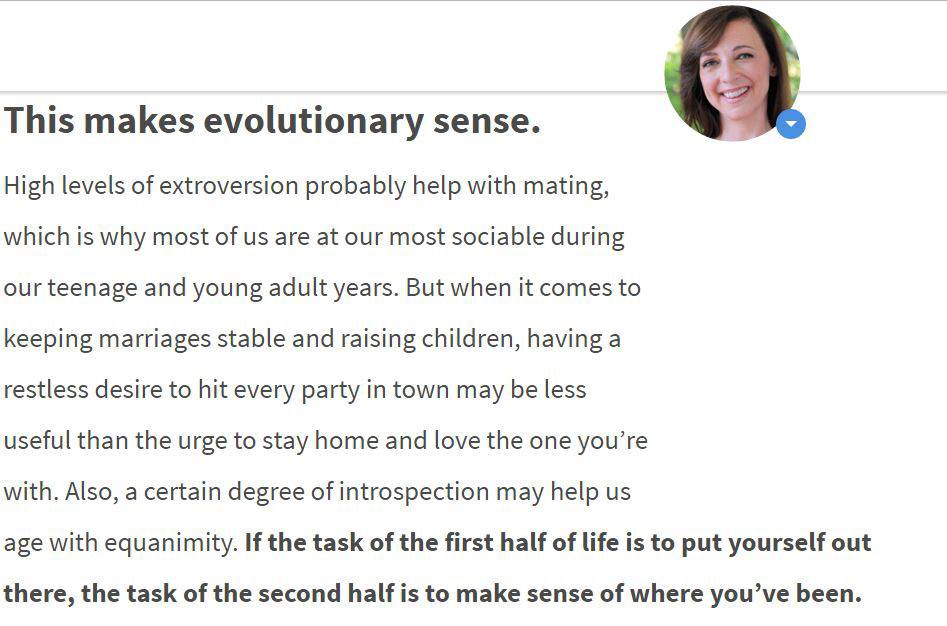As a small business owner, do you find the most difficult part of running your company to be a menial task like making or answering calls? Do you feel exhausted or defeated upon the ending of each business meeting? If so, you might be an introvert.
Introverts have started speaking up more in recent years than ever before, thanks to technology and the ways that we’re now able to communicate with less pressure than a face-to-face interaction would merit. Since Susan Cain came out with her book and subsequent web revolution, Quiet, “me too!”s can be heard all around the web from those who have been hiding behind the screens of their computers.
Below you’ll find all that you need to know about what it means to be an introvert, and how it may benefit you as a business owner.
What is an introvert?
Swiss psychologist and psychiatrist Carl Jung was the first to propose and develop the understanding of introversion, its opposite, extraversion (sometimes argued to be spelled extroversion, though it continues to be up for debate). According to his theories, these two personalities are simplified as one who feels energized by looking inward or one who feels energized by being social and interacting with other people.
Encyclopedia Britannica states that excessive daydreaming and introspection, careful balancing of considerations before reaching decisions, and withdrawal under stress are also typical of the introverted personality.
Extraversion/Introversion spectrum
No one is 100% extraverted, and the same goes for introversion. It’s more of a spectrum. Like most things in life, being too far on either side isn’t good. A balance is preferred.
Too much introversion can lead to shut-in behavior, social anxiety, schizoid personality or even psychosis. It turns out, too much looking inward can mean disconnecting from the world in the worst of ways. However, complete unwillingness to look within and reflect can reveal itself in negative ways as well. Negative results include mania, workaholism and addictive behaviors.
Let’s get a couple of things out of the way:
Introversion is not Shyness
Introverts and extraverts can both be labeled as shy. Shyness is a behavior, not a personality trait. That means that shyness is something that can be overcome, whereas being an introvert is something that is in one’s nature. According to the American Psychological Association,
Social Anxiety or Introversion?
Social anxiety, or the fear of being judged, is another reason cited for not enjoying group activities. But fear of judgement isn’t something that defines someone as an introvert.
Remember: it’s a matter of noticing what situation are those in which you feel most energized.
Social anxiety, like shyness, is something that can be overcome. It is something often born from attempts at perfectionism that leads a person to feeling like they may one day be “found out.”
Someone can be either shy or introverted and be completely okay with it, while someone who is suffering from social anxiety will find themselves mulling over what could happen or does happen in a social situation. They beat themselves up over shyness, and it creates a negative cycle where they become more socially anxious.
More myths about introversion
When you don’t always speak up, people begin to draw a lot of conclusions. Thus, introverts are the more missundertood personality type in American culture. Here are a few more myths about being introverted, according to LifeHackerIndia:
Are you an introvert?
It seems the easiest way to determine whether you’re an introvert or an extravert is to ask yourself this question:
When you feel down, stressed, burnt-out, tired, overwhelmed, drained or exhausted, what do you do (or want to do) to feel better? What works best to recharge your psychological or spiritual battery?
Stephen A. Diamond, Ph.D.
Other signs that you are in fact an introvert include a preference toward solitude, after social interaction you need time to decompress, you cringe at times when the phone rings, and you prefer deep interpersonal relationships over having a large quantity of friends.
Can you change from being an introvert?
In short, the answer to this question is no. However, this is still a challenged thought.
Where psychologists agree
A personality trait is something innate that cannot be changed. Even if you are “putting yourself out there” more often and being social more often. Studies show that how depleted you feel after these activities will remain the same.
What is seen at times is a facade of introversion or extroversion. This can appear due to societal expectations or familial obligations, but that will leave the person suppressing their true selves to be tired and depressed, often without understanding the reasoning why.
Brain scans have shown differences in the neurological makeup of introverts and extraverts.
During a 1999 study of cerebral blood flow of extraverts v. introverts, scientists concluded that introverts had more blood flow in the frontal lobes and anterior thalamus. These are the regions that are used for recalling events, making plans, and solving problems.
Where psychologists disagree
Research psychology shows that people tend to have the same personality traits upon graduating high school as they do when they become senior citizens. However, people seem to become more introverted as they age. Perhaps due to reduced energy levels overall.
Versions of Introversion (say that ten times fast)
Four categories
Most of what people think of introversion is not the textbook definition, instead it is what people have determined to not be extraversion. In fact, one way that psychology professionals define the interworkings of an introvert is with four different types of introversion, each of which they may have more or less than average: Social, Thinking, Anxious, and Restrained.
- Social: this person has a preference toward solitude or small groups over large, but without any shyness or anxiety toward large groups.
- Thinking: this person introspective, thoughtful, self-reflective.
- Anxious: Social anxiety that doesn’t fade when returning to solitude. These types of introverts continue to replay the things that were said over and over in their heads, considering the ways in which what was said and done would be received by others involved.
- Restrained introverts are those in which they need time to process and time to gain energy in order to speak or act.
This can be debated, however, as many professionals don’t see anxiety as being a facet of introversion in itself.
How does being an introvert affect a business owner?
Can an introvert still be successful in business leadership?
Yes! One hundred times, yes. Though you may dread sales calls and networking, you can still be a successful entreprenuer. We’ve seen this time and time again. Famous introverts include Mark Zuckerberg, Guy Kawasaki, Marissa Meyer, Bill Gates, and Barack Obama, to name a few.
Some even argue that introverts are better in business. Advantages that an introvert may have may include:
- Longer periods of sustained focus.
- More likely to have balanced and critical thinking.
- Feel comfortable empowering others.
- Think more thoroughly about an idea before launch.
- Internally motivated.
- Keen listening ability.
What do business-owning introverts need to do differently?
- Take time to recharge. Whether it’s with a cup of tea, a good book, a walk through nature, or meditation, find a way to relax between times you need to deal with clients and big groups.
- Meet one-on-one. That way, you won’t have the noise, pressure, or energy depletion of a big event.
- Find a good business partner. It is helpful to have someone dependable who can help you through the social aspects of being a business owner.
- Outsource. If sales aren’t your thing, hire an employee so you can focus on the work. If you dread the phone, hire an answering service.
- Survive networking. You don’t have to be meeting people all of the time, and you don’t need to know everyone in your industry. But you can find ways to be a better networker.





